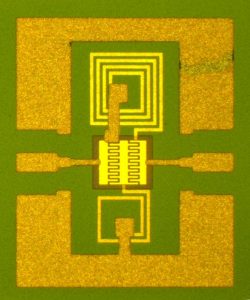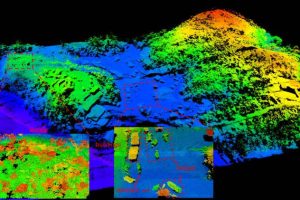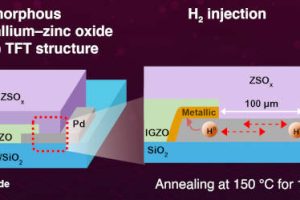
Previously, the high-k dielectric has always been too lossy to be of use, according to researchers at University of California, Santa Barbara.
“The catch is that the deposition of complex oxides, such as barium strontium titanate, is problematic because of the high temperatures and oxygen-rich environment involved,” said the University. “The team’s work clarifies that early work within the field that reported disappointing performances of BST-based devices was limited primarily by deposition and processing methods – not by intrinsic limitations of the underlying material itself.”
What made deposition of BST with low dielectric loss possible was a hybrid form of molecular beam epitaxy that uses metal organic precursors.
Another key discovery was that some chemicals commonly used in photolithography contaminate BST, possibly contributing to earlier quality problems, so some changes in fabrication process were required.
Also, the material’s large dielectric constants “present fabrication challenges because the inherently high capacitance density of the films requires smaller electrode dimensions and finer lithography than many typical integrated capacitor structures,” said Professor Robert York of UCSB. “Low-loss reactive devices also pose significant measurement challenges at microwave frequencies. The close collaboration of materials scientists and electrical engineers, and years of experience in device processing, was integral to the success of our work.”
He sees BST capacitors being used to create tunable antennas for cellular communications, or to create phase-shifters (see photo) for phased-array antennas in mobile satellite communications.
York also pointed out that some barium strontium titanate devices are already used for commercial RF electronics, and the infrastructure for deposition and fabrication already exists within semiconductor foundries.
Next the team intends to demonstrate ICs with films deposited directly on metal electrodes.
The work is published as’(Ba,Sr)TiO3 tunable capacitors with RF commutation quality factors exceeding 6000‘ in Applied Physics Letters.
 Electronics Weekly Electronics Design & Components Tech News
Electronics Weekly Electronics Design & Components Tech News



